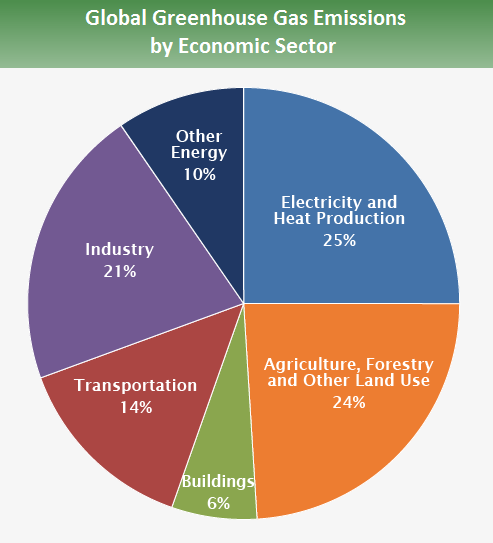Questions of social and economic class must be at the centre of our response to the climate crisis, to address the huge inequalities between the carbon footprints of the rich and poor and prevent a backlash against climate policies, the economist Thomas Piketty has said.
Regulations will be needed to outlaw goods and services that have unnecessarily high greenhouse gas emissions, such as private jets, outsized vehicles, and flights over short distances, he said in an interview with the Guardian.
Rich countries must also put in place progressive carbon taxes that take into account people’s incomes and how well they are able to reduce their emissions, as current policies usually fail to adjust for people’s real needs.
I would love to see large SUVs and trucks taxed to hell and back.
Definitely unless it’s needed for your profession. Plumbers, electricians, gardeners, contractors, etc are the only people who need to drive trucks. David Chaddington doesn’t need his F 150 to go between school and home
Removed by mod
Well, yeah… until recently.
In the last year it feels like Australia has been indvaded by the oversized “truck”.
We’ve had 4wd “utes” forever. I think yanks would call these trucks but they’re more regular sized, Isuzu D-Max, Toyota Hilux, et cetera. They don’t look out of place in the super market car park.
For reasons unknown to me about a year ago we have been overrun with the big ford F150 or Ram trucks. If you whinge about it someone inevitably cries about how they need it for work… but they managed to survive with a regular ute until last year.
I’m not sure Ford and Dodge should be allowed to make things that big. Many businesses were doing fine in the US with trucks lower to the ground, that had larger more functional flat beds, for many years. It’s only recently that the big truck became a status symbol.
I work in carpentry and we drive a full electric Ford transit. Open bed pickup trucks are horrible if you work in a trade, with tools and materials in the bed easily stolen or damaged by weather. Trucks are stupid if you actually do work, and most people buy one to look cool, or for those rare times twice a year when they “need” a truck. Could just rent a fucking U-Haul.
If those professions really need a large vehicle they will be able to pass the additional costs on to their customers because all of their competition will be doing the same thing
A good solution would be to just ban them from cities without a special (possibly temporary & renewable) permit provided you can verify you need to use a truck/SUV in said urbna area
Perhaps, but I think we should always be wary of additional regulations. I wouldn’t say I’m “small government” but I feel like any additional rules has the burden of regulatory cost and unintended consequences.
Just tax the fuck out of fuel IMO. Make it so expensive that people actually change their behavior to minimise the cost.
Most countries have some kind of tax credit system to waive taxes on fuel for particular uses like transporting food and consumer goods, so a heavy tax on fuel doesn’t have to lead to inflation.
deleted by creator
We absolutely should, but it’s not going to make much of a difference overall.
Transportation is 14% of ghg emissions

Aviation is 13% of that in the EU (I couldn’t link the US one, but it’s similar)

Private jets are about 0.2% of total aviation emissions.
This absolutely should be done, but it’s not necessarily going to do a whole lot overall, just low hanging fruit.
I understand Your point, but private jets also are a symptom and symbol of the ultra high emissions lifestyle of the super rich. This 0.2% only benefits a two digits number of people. This is insane in and of itself. One day of "normal use " of one of those has a carbon footprint most of us would struggle to reach in a whole year.
The global impact is not the issue here. What matters is how few people it benefits.
It’s the same argument as banning private schools - if the rich have to use the same infrastructure as the rest of us, they’ve got less incentive to dismantle it.
You are killing the symbol of travelling on airplane. It makes the railway growing up and mechanically shrinking the car use. People using the train to travel will use more public transportation in their daily life.
It’s really about changing the mentality.
carbon tax on private jets?
Agreed.
I feel like the “ban X” trend is extremely lazy. The real problem is that carbon emissions are an externality; the cost of emissions aren’t factored into the cost of doing business. It’s basic economics. Industry, commerce, and consumers have no reason to account for carbon emissions, and so the overwhelming systemic pressure is to continue business at usual.
Carbon emissions aren’t “immoral” in the same sense that theft or murder are, but they absolutely impose an ecological cost. Outlawing carbon emissions is not only unreasonable and politically impossible, but I would also argue unethical. As much as we altruistically fight to find alternatives, it’s likely that several industries vital to our economy will have to continue to emit carbon. The least we can do is compensate society for the shared ecological cost.
Fine businesses for not allowing working from home where possible.
If I have to travel for an hour to get to a desk to do the same shit I can do from my house, that is killing the environment for nothing. For literally no benefit, not even monetary.
£10 a day per employee you make come into the office.
The pandemic proved this shit works. There’s no backsies now.
Who?
Thomas Piketty is a French economist known for his work on wealth and income inequality. He gained significant attention for his 2013 book “Capital in the Twenty-First Century,” which argues that the rate of return on capital in developed countries is often larger than the rate of economic growth, leading to wealth inequality. His work combines historical and statistical analysis to discuss the dynamics of inequality and proposes solutions like progressive wealth taxes to reduce these disparities.
Piketty’s work has been influential in economic and political discussions worldwide.
Billionares seething
Don’t ban, just tax them appropriately. :)
I’ve got an instinctive aversion to category-bans with political motivation…
Then I remembered helicopters.
Sure, ban private jets, which burn fuel fast, but not private helicopters, which burn more fuel per minute than you would believe…
Why stop at jets?
Why not ban private piston-planes?
Why not ban private vehicles, all of them?
Surely that’d cut down waaay more than just private jets would?
Shouldn’t farmers use the bus to get their produce to the city??
Politically motivated sledgehammer-to-crack-a-walnut stuff just doesn’t work right, for me.
Enforcing prison-time for corporate executives who lie in court, on their taxes, in their broadcasts, that would probably do significantly more than banning private jets.
Enforcing objective factuality in corporate communications would, if it had teeth, put a fair number of corporate disinformation-pushers in prison, and would possibly remove much propaganda from our world.
I can definitely see the advantage in being able to get from workplace to workplace quickly, without hassle…
There was a “Yes Minister” episode, where a newly-elected minister was shamed for using a driver & driven-car, so he began driving himself, iirc, and he lost the ability to work while commuting, significantly damaging his productivity…
… as intended.
Keep in mind that different categories of work have categorically-different boundaries:
Welders have to move their gear, have to get to the work, have to do the work, have to get away from the work, but you can’t do welding without welding-gear, right?
& not that much changes between jobs, re welding ( that Japanese company who made MIG titanium wire, through a powder-metal process, … they never made it available, so … nice news, but it didn’t change anything, right? )…
Whereas, if you’re ears-deep in specialized knowledge, and the more hours per day you spend studying your domain’s specialized stuff, either job-specific, or advances earned by others, you are working.
Therefore, working-while-commuting is nonsensical for welders, pipefitters, masons, etc, but it is normal for knowledge-workers.
Tax the rich: that’d do more good than this, and if you won’t tax the rich, but continue taxing the working-poor, then it’s just political bullshit/grandstanding.
I realized part of what was unconsciously-bugging-me about it…
A commercial-pilot, who owns their own bushplane,
who serves the North,
who is self-employed,
would be banned, by this kind of law.
It’s their private jet ( turboprop ),
therefore it would be banned.
That would gut the communities they serve.
Beware of how the authority-over-others-drug “makes” people create sloppy legislation, how it “makes” people create sloppy interpretations of legislation, & enforce sloppy/abusive renditions of legislation.
also yachts while we’re at it
Motor yachts, speedboats, super yachts yeah, but not your average privately owned, normal sized sailboat. Average private sailboat sails majority of the time and uses a mix of solar/wind/hydro for electric, unlike that fucking monstrity of Bezos with its fucking chase ship and helicopters.
They would never register the yacht in the states then. It’s a good idea, and should happen, but the loopholes are there for them to exploit, and it needs to stop.
Then a docking tax in domestic harbors matched to the carbon tax would seriously reduce the usage of those yachts.








